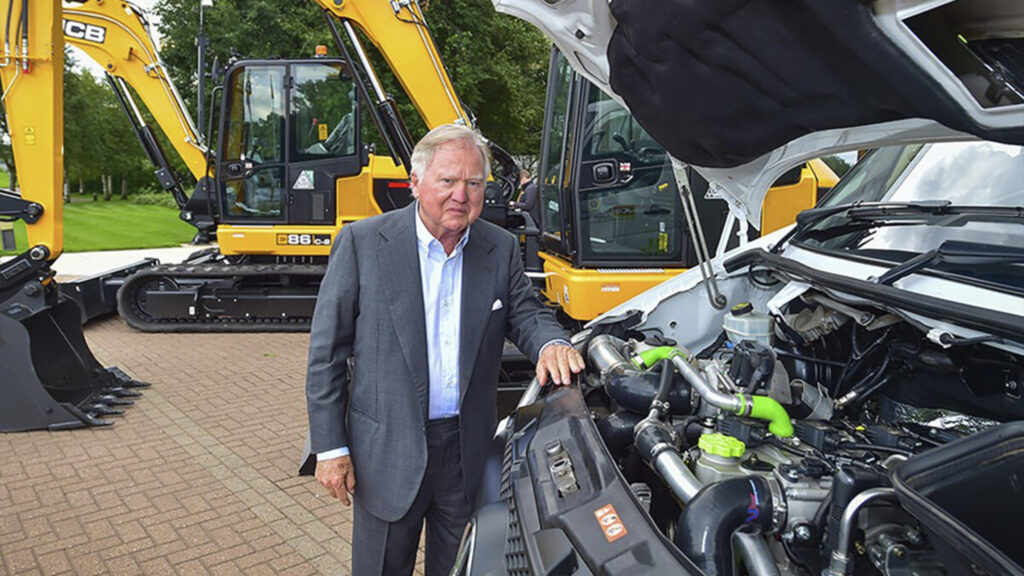British heavy equipment manufacturer JCB is on a mission. A mission to raise awareness about the viability of hydrogen as an alternative to battery power for the future of transportation.
The company has previously been bullish about the future of hydrogen-powered vehicles, developing over 70 prototype engines for future tractors and construction vehicles. However, their latest project has been designed to showcase the benefits of the new energy source to other interested parties, with the company taking it upon themselves to convert two vehicles from their fleet.
Having previously installed a hydrogen engine into one of the company’s own 7.5-tonne Mercedes trucks, JCB turned its attention to a diesel-powered Mercedes Sprinter van. Although the specifics of engine capacity and power outputs were not made available, JCB chairman Lord Anthony Bamford claims that the pulling power and torque characteristics are the same as those of a typical diesel engine.
Related: Here’s Why A Taxi Firm Is Losing Patience With Hydrogen-Powered Cars As It Mulls EV Switch
But don’t expect JCB to be offering retrofit kits to the general public. Bamford says that offering conversions is “not for JCB to do.” Instead, he wanted to show that there are alternatives to battery power.
In 2021, the multinational, best known for its tractors and construction equipment, embarked on a program to invest £100 million ($126 million) into the development of hydrogen combustion engines for its vehicles. The project involves 150 British engineers and has yielded a prototype JCB backhoe loader and Loadall telescopic handler machine powered by hydrogen — both world firsts.
JCB isn’t entirely averse to battery power, though. They offer their own range of smaller-scale vehicles that are entirely electric. However, for larger industrial and agricultural applications, the company believes that hydrogen power is the future. To that end, another innovative solution presented by JCB is a mobile hydrogen refueller, which provides a quick and straightforward way to refuel machines on-site.
But the hydrogen-converted Mercedes Sprinter does provide an interesting talking point. Is there potential for workhorse-like vehicles to benefit from being converted into running hydrogen rather than going for an EV? Could, or should, a new hydromod industry be born?




